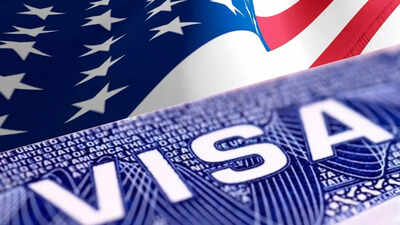In a dramatic shift in U.S. immigration and sports policy, the government has moved to explicitly limit visa eligibility for transgender women athletes—a development with far‑reaching consequences. This measure, framed under the banner of fairness and safety in women’s athletics, raises critical questions about the intersection of immigration law, gender identity, and civil rights. It highlights a growing tension: how to ensure competitive integrity in sport while respecting internationally recognized principles of equality and non‑discrimination. As colleges, Olympic bodies, and transgender rights advocates respond, this policy marks a pivotal moment in the evolving debate over Title IX, gender identity, and international competition. What began as an executive order has now permeated immigration law, reshaping not only who may compete, but who may enter the United States in pursuit of athletic opportunity.
Here is what we know about the policy overview so far
On August 4, 2025, the U.S. Citizenship and Immigration Services (USCIS) issued a policy update—aligned with Executive Order 14201, titled “Keeping Men Out of Women’s Sports”—to restrict visa eligibility for transgender women seeking to compete in women’s sports in the United States. (via. USCIS) Targeted visa categories include O‑1A, EB‑1, EB‑2, and National Interest Waivers, all often used by elite international athletes. Under the new guidelines, USCIS will consider “the fact that a male athlete has been competing against women” as a negative factor in adjudicating petitions. (via. Reuters) USCIS spokesperson Matthew Tragesser commented, “USCIS is closing the loophole for foreign male athletes whose only chance at winning elite sports is to change their gender identity and leverage their biological advantages against women.” He further added, “It’s a matter of safety, fairness, respect, and truth that only female athletes receive a visa to come to the U.S. to participate in women’s sports.”
What are the legal implications of this new policy?
This action extends a broader federal enforcement strategy led by President Donald Trump. On February 5, 2025, he signed Executive Order 14201, seeking to reinterpret Title IX of the Education Amendments strictly according to biological sex assigned at birth. The order threatened to “rescind all funds from educational programs” permitting transgender women’s participation in women’s sports. Following the order, the NCAA mandated female-only participation for athletes assigned female at birth, and U.S. Olympic and Paralympic Committee (USOPC) policies rapidly shifted to match. In July 2025, USOPC formally updated its eligibility rules to comply with the executive order. Legal experts warn these developments may face constitutional challenges. Lawsuits relating to Title IX and equal protection—including California and Idaho policies—are already moving through courts, including the U.S. Supreme Court’s docket in the 2025‑26 term. While the visa restriction ostensibly focuses on transgender athletes, its language hints at broader applicability. According to policy analysts, consular officers may deny visas for “reasonable suspicion of mismatch between gender identity and sex assigned at birth”, raising concern for transgender travelers across all categories, including students and researchers. This visa policy marks a decisive moment in U.S. immigration and sports governance, reshaping entry criteria for transgender female athletes under contested grounds of fairness and biological authenticity. While proponents frame the move as protecting women’s athletics, critics argue it reinforces systemic discrimination and violates the rights of a vulnerable minority. Legal and civil‑rights groups have pledged to challenge both the sports bans and visa restrictions. Institutions, including universities and Olympic bodies, must now maneuver through conflicting mandates—balancing Title IX obligations against federal immigration directives. As courtrooms, campuses, and consular offices grapple with this evolving framework, one truth remains clear: the debate over gender, sport, and immigration has become inseparable—and its outcomes may define access and equity for years to come.






